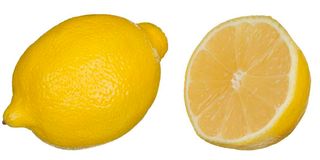Why girls cleaning their vaginas with lemon risk their health

Doctors warn against using lemons on the private part as it imbalances the vaginal pH.
What you need to know:
- Girls using lemons to clean their private parts assume the juice washes away the sperms, hence keeps them free from pregnancy.
- Researchers have sought to establish whether lemon and lime juice have treatment and prevention properties and found it is harmful to the vaginal tissues.
A recent forum on safeguarding adolescents against violence, revealed that girls were using lemon to clean their vagina after sex.
The girls assume the juice washes away the sperms, hence keeps them free from pregnancy.
This is notwithstanding the dangers thereof.
Obstetrician and gynaecologist, Dr John Ong’ech warns against using lemons on the private part as it imbalances the vaginal pH.
“A lemon has acetic acid which causes a chemical irritation and inflammation at the same time,” he says.
For a woman or a girl to be safe from bacterial and fungal infections, the vaginal pH should range between 3.8 and 4.5.
“The acidity of the vagina helps control bacteria and prevents the overgrowth of infection-causing anaerobes and other unfriendly pathogens, such as Gardnerella vaginalis and Mycoplasma hominis, which prefer a higher pH,” reads a guidance note on importance of vaginal pH on Gynalac, a vaginal gel that treats and prevents symptoms of bacterial vaginosis
Further, “This acidic environment provides an effective natural protection for the vagina against infection and irritation as the majority of harmful micro-organisms cannot survive at a low pH.”
Harmful effects
Researchers have sought to establish whether lemon and lime juice have treatment and prevention properties. The results, however, show harmful effects on the vaginal tissues.
For instance, a 2010 study Safety and anti-HIV assessments of natural vaginal cleansing products in an established topical microbicides in vitro testing algorithm, concluded that lemon and lime juice fail the safety criteria mandated for a topical microbicide.
A microbicide is a substance applied inside the vagina to considerably lower the transmission of sexually transmitted infections.
“As a result of their un-physiological formulation for the vaginal tract, they exhibit cytotoxicity to human cell lines, human vaginal tissues, and beneficial vaginal Lactobacillus species,” reads the study published in BioMed Central.
Others looked at the social and health reasons for lime juice vaginal douching among female sex workers in Borno State in Nigeria and established multiple harmful effects of using lime juice.
They found lime juice users to have an increased susceptibility to sexually transmitted infections than non-users. The lime juice users also had a higher prevalence of HIV infection than non-users.
“A Papanicouleaua (pap) smear test for cervical lesions also showed that moderate to severe dysplastic (presence of abnormal cells within a tissue or organ) changes were more prevalent among lime-juice users,” indicates the study published in the African Journal of Primary Health Care and Family Medicine.





